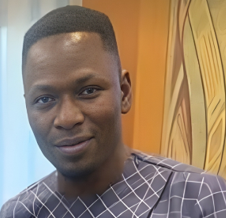The crucial next step in the job search process after finally getting your foot in the door is proper interview preparation. It is common to get dazed by an unexpected or difficult interview question. One of the common mistakes candidates make during the interview preparation process is to memorize answers.
While it’s impossible to know exactly what an employer will ask, you need to have a fair understanding of the role you are going to be interviewed for. This means preparing adequately, analyzing various scenarios and developing varied responses to avoid being caught off guard when the panel poses a question.
You can do this by examining tough questions, their purpose and ways to approach them can help job-seekers feel confident and prepared going into their interviews. Also ask others in your industry for unexpected questions they’ve been asked in interviews.
Here are some of the five most difficult questions you might be asked by a recruiter and proven tips to help you answer them correctly and confidently:
Why you want to leave your current job, or why you left your previous job?
This is one of the most commonly asked interview questions during most interview sessions- whether you are transitioning, applying to a similar role within a different industry etc. In answering this question, always remember to keep your answer positive, even if you left under very challenging circumstances.
It is not prudent to share your grievances or give an answer that will be interpreted as ‘‘giving off too much information’’. Keep in mind that the interviewer wants to know why you want to work with the organization. Focus your answer on the future and the fact that you are ready to take on a new challenge. For example: I have been working for my company for a long time and I believe I have maxed out my growth opportunities. I am ready for a new challenge with my wealth of experience in Corporate Finance.
Tell me about a time you disagreed with your boss or a decision made
This is a behavioral question designed to have an understanding of your past working relationships and how you deal with differing opinions in the workplace. It helps to give the recruiter an insight into how you approach certain delicate matters.
Having differing opinions or even disagreements form an integral part of human nature. We are all different and the fact that we have opposing views on certain issues should affect our working relationships negatively. Disagreements are fine; how you disagree or handle the issue is what matters.
Show professionalism and raise your concerns in the right way. The way you approach the response goes a long way to tell the recruiter a lot about your level of emotional intelligence, loyalty and responsibility. If you have an example that proves you can effect change, you can also add that.
Why do you want this job?
This question gives you an opportunity to tell the interviewer that you know what is expected of the role you have applied for, what the company is looking for and how you can leverage on your skills and expertise to achieve the overall objectives of the firm.
In answering this question, talk about how the role is a perfect fit for what you want to accomplish as part of your short to long-term goals. For example: I am interested in the job because I see the opportunity to learn and grow and I believe my strengths and skills are in line with the job expectations.
How do you think people will describe you?
With this question, the recruiter wants to have a general sense of your personality and self-awareness. An interviewer will typically look out for certain key details in your submission to ascertain how your personality traits will help you adjust to the role you are being interviewed for, how you will be able to transition and adjust to the company’s culture and ultimately how your personality can be beneficial to the organization.
For example, you can say: I think people would describe me as an organized, firm and thoughtful person who works well under pressure. I am very principled and a man of my words; if I say I will do something, I do it and they can count on what I say and how hard I work.
Tell me about the toughest decision you have made in the last six months
When asked this question, the interviewer wants to assess these four key things; reasoning ability, problem-solving skills, judgement and willingness to take certain intelligent risks. Providing a good answer proves you can make a difficult analytical and reasoning-based decision. Your toughest decisions should be work-related and not problems or crises you have faced recently in your personal life. For example: The toughest decision I made recently was moving from my comfort zone and taking on a more challenging task in a different department.
There’s no one-size-fits-all approach to answering interview questions but your goal is to always be prepared for them. While some interview questions are common and expected, others may be unexpected and you need to prepare as much as possible for unexpected scenarios. That way, you’ll know how to answer any interview question with ease and precision.
Selina is a Human Resource Professional with over 11 years’ experience in Strategic Human Resource Management, Talent Development, Employee Relations, Labour Law etc. She is a Certified Human Resource Practitioner She has extensive experience working within Ghana’s banking sector. Currently, Selina works with one of Ghana’s leading banks as a Talent Resourcing & Onboarding………… She also runs a YouTube Channel Selina Buabeng where she shares relevant job search and career development tips for individuals.
Connect with Selina via:
LinkedIn: Selina Buabeng https://www.linkedin.com/in/selina-buabeng-851b7b45/
Instagram: @selinabuabeng_ https://instagram.com/selinabuabeng_?utm_medium=copy_link
Twitter:
Youtube: Selina Buabeng https://www.youtube.com/channel/UC9fiC1fIbIJTwTCs6P6nrpQ










